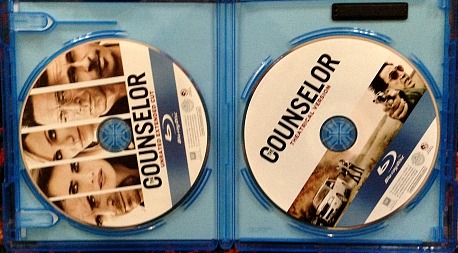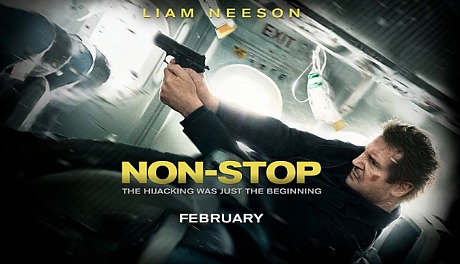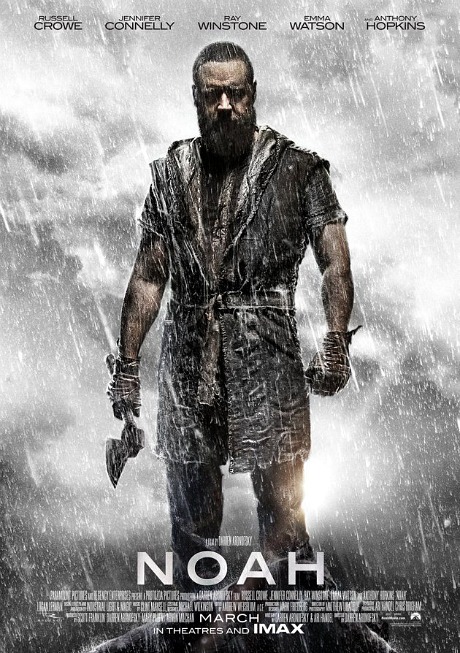If you’re shooting a scene on rural railroad tracks, you need to do two things. One, you need to contact local railroad authorities and make double-sure about which trains will be coming along at exactly what time. And two, you need at least two production assistants with walkie-talkies to be watching several hundred yards away in both directions in case a rogue train shows up unexpectedly. If you haven’t done both these things, it’s your own damn fault if something goes wrong. Another sensible idea: if you’re shooting with a bed on the train tracks and you suddenly realize that a rogue train will be roaring through in a minute or less, you get the hell out of there. Forget about the bed and run like hell or jump off the railroad trestle bridge…simple.
 Jeffrey Wells
Jeffrey Wells
“I Hope To See You In Chicago”
“Actors have been lashing out against their profession and its grip on their public images since at least Marlon Brando,” James Franco remarks in a 2.19 N.Y. Times Op-Ed. “Brando’s performances revolutionized American acting precisely because he didn’t seem to be ‘performing,’ in the sense that he wasn’t putting something on as much as he was being,” he states. This is precisely what Brando seems to be doing during this lightly absurd 1965 press conference for Bernhard Wicki‘s Morituri, a World War II thriller made during Brando’s ten-year stinker phase (which wouldn’t end until The Godfather). Brando has obviously decided not to sell but to “be.”
Bluntly, Frankly
“An Oscar Voter Spills Secrets on Woodygate, Wolfgate, and Awards Scandals” by Daily Beast contributor Michael Musto. Subhead: “There are 6,000 Academy Awards voters, but there’s only one who really counts — the one willing to talk to us about Woody Allen, American Hustle and all the Oscar smear campaigns.”

Two-Person Race
Grantland‘s Wesley Morris and Chris Connelly both believe that Lupita Nyong’o will take the Best Supporting Actress Oscar. So do I.
Needs To Be Seen
I’ve now watched the extended cut (138 minutes) of Ridley Scott‘s The Counselor twice — via iTunes in Prague and again last night on Bluray. There are one or two new scenes but it’s basically the theatrical cut with each interesting scene (which is nearly every one) running a bit longer. Some seem to go on a bit too long, but with a film like this “talkier” is generally better. In my mind the added length makes it a tastier, more satisfying meal all around. A cold meal, of course — The Counselor pretty much revels in its lack of compassion. But there’s no doubting this is one clear hard diamond — philosophically precise and commanding and unyielding and even (I know how this sounds) oddly personable in a perverse sort of way. I’ve posted a ton of material on this film, and we’ve all agreed that The Counselor doesn’t deliver the payoff that audiences tend to go to movies for. It is nonetheless a smart, well-engineered, well-oiled, first-class thriller-cum-philosophy lecture piece that comes from the pit of Hell. The Counselor is about as strong and uncompromising as a film of this type can theoretically get.

“I Will Not Be Destroyed”
Screen Archives Entertainment is selling Twilight Time’s Crimes and Misdemeanors Bluray for $29.95 plus shipping. Amoeba is selling it for $39 and change. And a nice-looking HDX version is rentable on Vudu for $4.95. I’ve seen this Woody Allen classic…what, six or seven times? The Bluray/high-def is better, but $30 bills and change seems too rich. The Vudu will have to do.
Feel Granger’s Pain
The Trailers From Hell guys are to blame for this post. Yesterday they put up a featured link for a grade-Z 1972 Italian exploitation sleaze-flick called Amuck (nudity, sex scenes, sadism, murder). After watching 20 or 30 seconds I was about to click off when I noticed that poor Farley Granger (Strangers on a Train, They Live By Night, Rope) had a lead role. Granger and his longtime boyfriend Robert Calhoun moved to Rome in the early ’70s for the work and whatnot, but to have once been at the very peak of your profession only to wind up accepting icky exploitation gigs as your drawing power fades…the humiliation! Many actors who’ve fallen on lean times have gone this route. Thank fortune that Granger rebounded on the Broadway stage in the late ’70s and ’80s (The Seagull, The Crucible, The Glass Menagerie, Deathtrap, The King and I, A Month in the Country). In 1986 he won an Obie Award for his performance in the Lanford Wilson play Talley & Son. Granger died on 3.27.11 at age 85.
The Dead
To judge by early reviews of Paul W.S. Anderson‘s Pompeii (Sony, 2.21), the following HE piece about a 2007 visit to the actual Pompeii is probably a bit more interesting than the film. I’ll never know, of course, as I’d rather jump off the Santa Monica Pier at midnight than see it. The CG zombie-whore vibe is like the stench of carrion. Update: Disdain doesn’t cut it. Sony never invited me to a screening so I’ll be paying to see Pompeii early Friday.


“With spooky, half-shaped visions of Roman Polanski‘s Pompeii flashing in my head, Hollywood Elsewhere visited the Pompeii ruins yesterday,” I wrote on 5.31.07. “I’m very glad I went — this is the best-preserved ancient Roman city anywhere, covered as it was and frozen in time by tons of ash that spewed out of Mount Vesuvius on August 24, 79 AD. The problem is that I was too cheap to buy a map or go with a tour group, and by the end of our visit I’d come across only one lousy plaster-covered body.
Adjustment
I’ve been dealing with the usual fatigue issues since returning last night to Los Angeles. I was in Berlin and Prague for a week and a half, and then Manhattan for a couple of days. I had just gotten adjusted to the European clock (nine hours ahead of L.A.’s) when I turned around and flew back. It’ll take about a week to get back in the groove. In the interim you sleep at odd times and wake up at 2 am…patterns like that. Once you’ve divorced yourself from the idea that sleep is something you do only from, say, 11 pm or 12 midnight or 1 am until 6:30 or 7 the next morning, you’re fine. A half-hour from now I’ll be leaving for my first back-in-L.A. screening. A date with Liam “Paycheck” Neeson…okay.

Leap of Faith
All I know is that the more Darren Aronofsky‘s Noah doesn’t cater to religious rightwingers, the more I’m likely to find a place in my head for it. Will I be satisfied with a biblically themed movie — designed to appeal to conservative Christians — which replaces the Bible’s core message with one created by Hollywood? Yes…please! Will I be satisfied with a film depicting Noah as a “crazy, irrational, religious nut…fixated on modern-day problems like overpopulation and environmental degradation”? Yes, probably. I would like to believe that Aronofsky, a highly intelligent and discerning fellow, hasn’t sold his soul to make Noah, and that he despises fundamentalist Christians as much as I do. If he doesn’t share my prejudice I can at least fantasize that he does. It is, in any event, my solemn belief that any film that angers and alienates Christian yahoos has to be doing something right.

Easy Ballot
Two days ago I announced a Hollywood Elsewhere Oscar Ballot. Now with the gracious help of Awards Daily‘s Sasha Stone, a simple online ballot has been assembled. Just check your predictions and send it in. The balloting deadline is Saturday, March 1st at midnight.
